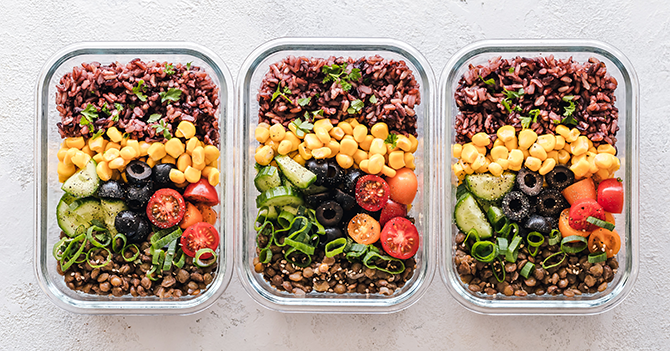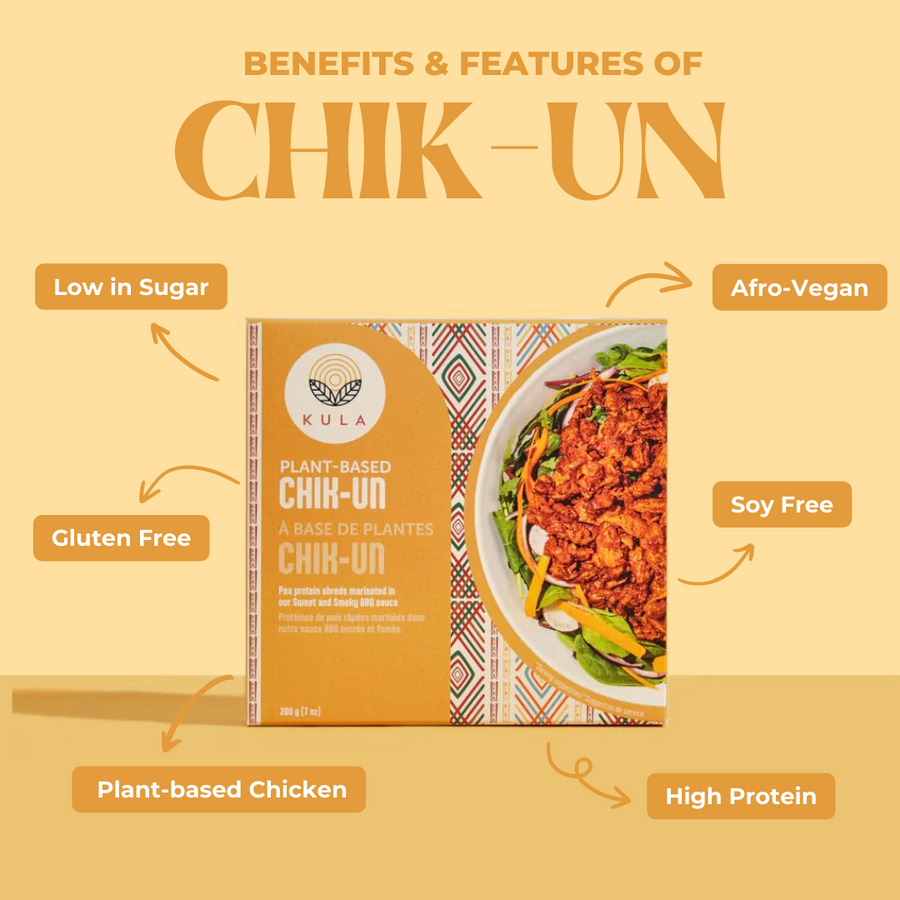Everything About Healthy And Balanced Food: Advantages of Checking Out Plant Based Alternatives
The conversation surrounding plant-based diet plans has gained significant focus recently. Lots of people are checking out the potential health advantages, dietary advantages, and environmental influences related to these nutritional options. As people become extra mindful of their food's influence on well-being and sustainability, inquiries develop regarding the practicalities of taking on such a way of life. What particular changes can one anticipate, and exactly how might these choices improve not only individual health and wellness but additionally the world's future?
Understanding Plant-Based Diet Regimens
Numerous individuals connect plant-based diets mostly with vegetarianism or veganism, these diet plans can include a wide variety of eating patterns that focus on entire, minimally processed plant foods. Such diet regimens commonly include fruits, veggies, entire grains, seeds, nuts, and legumes, while eliminating or restricting pet products. This adaptability allows individuals to customize their nutritional options according to dietary needs and individual choices. Some may embrace a largely plant-based diet while still periodically consuming meat or dairy, commonly described as a flexitarian approach. The focus continues to be on including more plant foods, which can cause a varied array of tastes and dishes. Understanding these numerous interpretations of plant-based eating is crucial for appreciating its availability and allure in modern food culture.
Health Perks of Plant-Based Foods
The health and wellness advantages of plant-based foods are substantial, offering a nutrient density advantage that supports overall wellness. Research study suggests that these foods can enhance heart wellness and play an essential function in efficient weight monitoring. By including extra plant-based options, individuals may enhance their dietary options and promote long-lasting health and wellness.
Nutrient Density Benefit
Nutrient density plays a necessary duty in the wellness advantages of plant-based foods, making them an engaging option for those seeking a balanced diet. Plant-based foods, such as fruits, veggies, beans, nuts, and entire grains, are usually abundant in crucial vitamins, minerals, and anti-oxidants while being lower in calories. This high nutrient density allows people to take in fewer calories while still meeting their dietary requirements. Furthermore, these foods are packed with nutritional fiber, promoting gastrointestinal health and assisting in weight administration. By integrating nutrient-dense plant-based options, customers can improve their overall wellness, support their immune systems, and lower the danger of chronic conditions. Eventually, the nutrient density of plant-based foods emphasizes their significance in a health-conscious lifestyle.
Heart Health Renovation
:max_bytes(150000):strip_icc()/45259671-97112006e572444a996dbbacfd4b8bed.jpg)
Weight Monitoring Assistance
In addition to advertising heart health and wellness, a plant-based diet plan can substantially help in weight monitoring. This dietary approach stresses whole foods such as fruits, veggies, legumes, nuts, and whole grains, which are typically reduced in calories and higher in fiber compared to animal-based items. The high fiber web content assists raise satiety, reducing general calorie intake. In addition, plant-based diets are often rich in essential nutrients while low in undesirable fats, making it less complicated to maintain a healthy and balanced weight. Gluten Free BBQ Sauce. Research study shows that individuals who embrace a plant-based way of living tend to have lower body mass indexes (BMIs) and experience more effective weight reduction contrasted to those that consume meat-heavy diet regimens. Consequently, accepting plant-based alternatives is a strategic choice for efficient weight administration
Nutritional Worth of Plant-Based Active Ingredients
Plant-based active ingredients are rich in linked here important nutrients, providing a diverse variety of vitamins, minerals, and anti-oxidants that add to general wellness. A contrast of healthy protein resources discloses that while pet items are often viewed as remarkable, lots of plant-based choices supply appropriate protein and other advantageous compounds. Understanding the nutritional worth of these active ingredients can aid people make notified dietary choices.
Important Nutrients in Plants
Nutrient-rich ingredients found in plants supply a varied range of vital minerals and vitamins that contribute greatly to general health and wellness. These components are rich in vitamins A, C, and K, which sustain immune feature, vision, and blood clotting, specifically. Additionally, plants offer essential minerals such as magnesium, potassium, and calcium, important for heart health, muscular tissue function, and bone strength. The existence of fiber in plant-based foods aids food digestion and promotes a healthy and balanced digestive tract microbiome. Antioxidants, located abundantly in fruits and veggies, help battle oxidative stress and lower inflammation. Several plant foods are low in calories yet high in nutrients, making them a superb choice for those looking for to keep a healthy weight while making certain perfect nutrient consumption.

Contrasting Protein Resources
Healthy protein sources differ significantly in their nutritional profiles, with plant-based ingredients offering one-of-a-kind benefits. Unlike animal proteins, which often have hydrogenated fats and cholesterol, plant healthy proteins tend to be lower in these harmful elements. Legumes, nuts, seeds, and whole grains are abundant in necessary amino acids, fiber, vitamins, read more and minerals. Lentils provide high healthy protein material alongside considerable iron and folate, while quinoa is a complete healthy protein, using all nine necessary amino acids. Furthermore, plant-based healthy proteins are commonly accompanied by anti-oxidants and phytochemicals that support total health. The shift to plant-based healthy protein sources not only boosts nutritional intake yet likewise aligns with lasting dietary methods, reducing ecological impact and promoting lasting health advantages.
Environmental Impact of Plant-Based Consuming
As awareness of climate adjustment grows, lots of individuals are discovering sustainable nutritional selections that can substantially minimize their environmental impact. Plant-based consuming has become a significant factor to reducing greenhouse gas discharges, which are largely associated with livestock manufacturing. The farming of fruits, beans, vegetables, and grains commonly requires fewer resources, such as water and land, compared to pet farming. In addition, plant-based diet regimens can lead to decreased deforestation, as less land is needed for grazing livestock or growing animal feed. By moving in the direction of plant-based alternatives, customers can sustain biodiversity and promote healthier environments. Generally, welcoming plant-based consuming not just advantages individual wellness yet additionally stands for a vital step towards ecological sustainability and preservation initiatives.
Overcoming Common Misconceptions
While many people identify the benefits of a plant-based diet, several mistaken beliefs commonly discourage them from fully welcoming this way of living. A typical idea is that plant-based diet plans lack sufficient protein; however, countless plant resources, such as beans, nuts, and tofu, supply adequate protein. Additionally, some assume that this diet regimen is pricey, when actually, staples like beans, rice, and seasonal veggies can be rather budget friendly. An additional misunderstanding is that plant-based eating is excessively limiting, whereas it in fact provides a varied variety of foods and flavors. Lots of worry that a plant-based diet regimen may lead to shortages, yet with appropriate preparation, individuals can get all needed nutrients, including minerals and vitamins, while delighting in a wide range of delicious meals.
Tips for Transitioning to a Plant-Based Way of life
Making the shift to a plant-based way of life can be an enriching experience, though it usually needs some guidance to browse the initial adjustments. Individuals are urged to start slowly, including more fruits, veggies, legumes, and whole grains right into their meals while minimizing meat and dairy products intake. Meal planning is necessary; preparing a weekly menu can assist alleviate the adjustment and prevent last-minute undesirable selections. Discovering cooking techniques and brand-new dishes can additionally boost the experience and maintain excitement concerning plant-based consuming. In addition, joining support groups or communities can offer motivation and share useful ideas. Ultimately, remaining educated concerning nourishment guarantees well balanced dishes, preventing deficiencies while fostering a healthy, rewarding plant-based way of life.
Delicious Plant-Based Dish Ideas
Checking out scrumptious plant-based meal concepts can inspire individuals to welcome a more healthy diet regimen. One popular alternative is a hearty quinoa salad, including cherry tomatoes, cucumber, and a zesty lemon-tahini dressing. One more fave is a tasty lentil stew, loaded with carrots, celery, and fragrant herbs, ideal for a soothing dinner. For morning meal, over night oats made with almond milk, chia seeds, and covered with fresh berries offer a healthy beginning to the day. Additionally, a dynamic veggie stir-fry with tofu and a site link selection of vivid veggies can be a quick yet satisfying meal. Velvety avocado salute on whole-grain bread, sprayed with seasonings and seeds, provides an easy yet delicious treat. These dishes display the range and splendor of plant-based eating.

Regularly Asked Concerns
Can a Plant-Based Diet Give Sufficient Protein?
The inquiry of whether a plant-based diet plan can provide enough protein is common. Countless sources, including vegetables, nuts, seeds, and whole grains, can fulfill protein requires successfully, supporting a nourishing and balanced diet regimen for individuals.
Are Plant-Based Diets Appropriate for Children?
The suitability of plant-based diets for kids depends on cautious preparation. Appropriate nutrients must be ensured, including vitamins, minerals, and proteins. With proper advice, such diets can sustain healthy and balanced growth and growth in children.
Exactly how Do I Eat Out on a Plant-Based Diet?
Eating in restaurants on a plant-based diet regimen involves seeking dining establishments with diverse menus, requesting for modifications, and checking out vegan-friendly alternatives. Planning ahead and connecting nutritional preferences can improve the eating experience while keeping dietary options.
What Are Common Allergens in Plant-Based Foods?
Typical irritants in plant-based foods consist of soy, gluten, nuts, and seeds - Plant Based Beef. Individuals adhering to a plant-based diet must understand these irritants and review tags carefully to prevent negative responses and assure safe consumption
Can Plant-Based Diets Assist With Weight Loss?
Research suggests that embracing a plant-based diet plan might promote weight reduction because of its usually reduced calorie thickness and greater fiber material. This combination can improve satiety, assisting individuals manage their caloric intake effectively. Numerous people associate plant-based diets mainly with vegetarianism or veganism, these diets can incorporate a vast array of consuming patterns that focus on whole, minimally processed plant foods. Nutrient density plays an important role in the health advantages of plant-based foods, making them an engaging option for those seeking a balanced diet. Plant-based diet regimens have actually been shown to substantially boost heart health and wellness, as they commonly include elements that sustain cardio function. In enhancement to promoting heart health, a plant-based diet regimen can substantially assist in weight monitoring. A typical belief is that plant-based diet regimens do not have sufficient protein; however, countless plant resources, such as legumes, nuts, and tofu, provide adequate protein.
Comments on “The Best Sugar Free Sauces for Diabetics Living a Plant-Based Lifestyle”